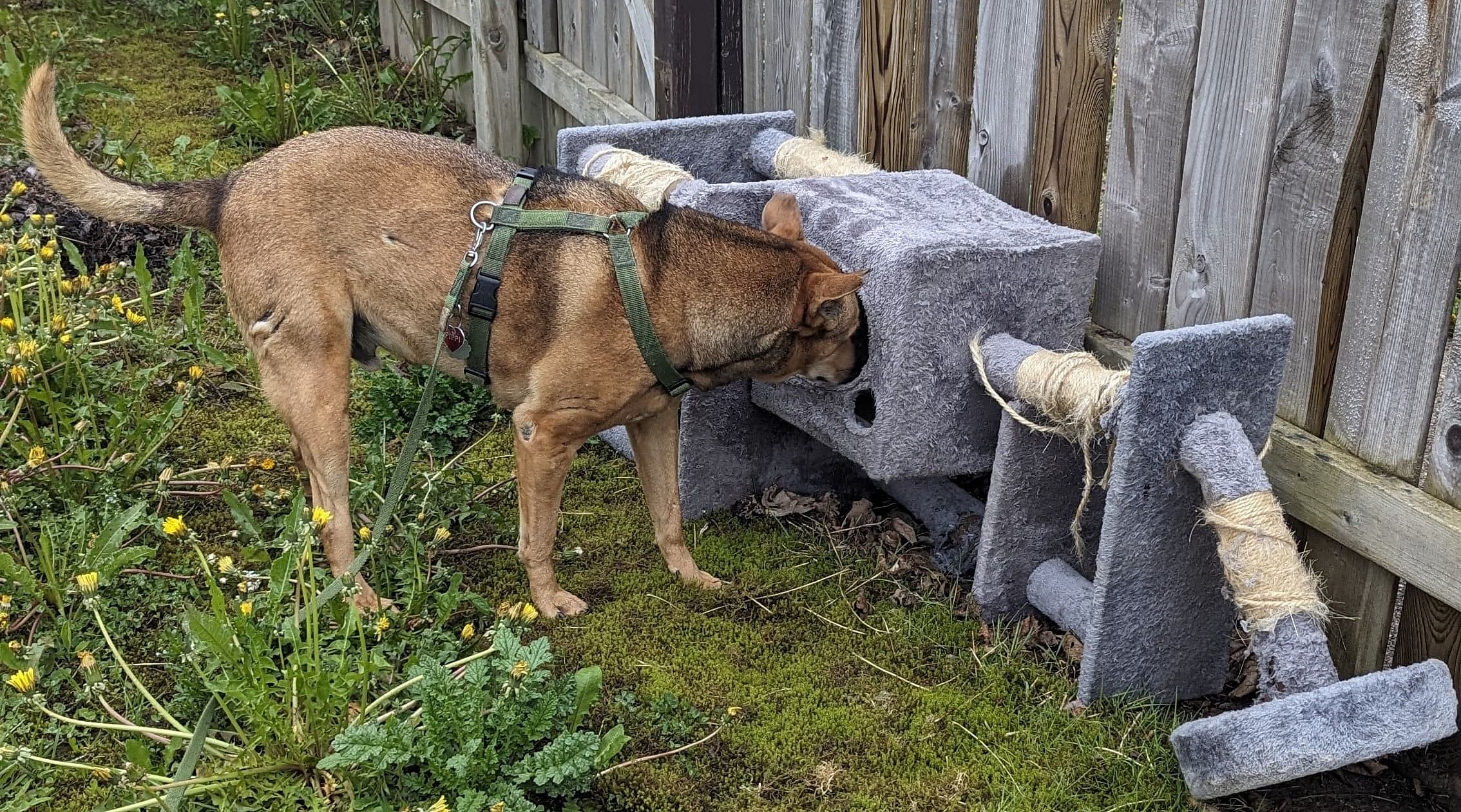
Pippi sniffing the discarded cat tree.
Credit: Image by author
It’s been a memorable spring in our otherwise quiet house — my brother and my parents are visiting us for a few days, and Pippi has been the apple of everyone’s eyes. The last time we saw each other was years ago, and as their arrival came closer, one question lingered in our minds: How would Pippi react when he saw them at the door? Would he recognise them? Would he instead bark? Your guess was as good as mine.
While human lives seem to move slowly, the four years have been quite eventful for Pippi — he has moved countries and cities that barely have anything in common, survived stressful air travels, met new people and animals, and switched to a whole new routine. That’s a lot for a dog’s tiny brain, thought my human brain. When my family landed, I promptly warned my brother — who Pippi loves, adores and plays rough with — to be careful and take it slow.
But brothers don’t listen, do they? Before I got to the door, unable to control his excitement, my brother unlocked it anyway and called out Pippi’s name in his signature style. In the past, whenever Pippi heard it, he responded with wild excitement — play bowing, wagging his tail like it’d fall off and running up to him. That evening was no different — as soon as Pippi heard his voice, he ran up to my brother, sniffed him all over and jumped in excitement like he always did. While the two indulged in furry love, my mind pondered about pets and their memories. How far in the past do our pets remember?
Several scientific experiments on cats and dogs have shown us they possess short-term memory — tiny bits of information in the brain that are easily accessed. It’s what helps them remember where their water and food bowls are or even recognise you. In fact, you could test it yourself — try hiding a piece of their favourite treat under the couch a couple of times and see them sniff at that spot every time they pass it. A week ago, Pippi spotted a discarded cat tree, and now he makes it a point to go to that tree every day to sniff endlessly. That’s also short-term memory in action.
Cats and dogs also have long-term memory, which they consolidate in their dreams as their brains sort and organise their daily experience during the REM (Rapid Eye Movement) sleep stage. You can see the process in action when your pets twitch in their sleep, chasing an imaginary squirrel or sniffing an imaginary treat. Whenever Pippi has an exciting day at the park — chasing a squirrel or sniffing out a rat — he almost always plays it out in his dream. Long-term memory consolidation helps our pets learn a new trick or grasp a word. So, let sleeping dogs (and cats) lie!
Until recently, scientists believed our pets, at best, have associative memory — where they associate a response to a cue. Ivan Pavlov called it classic conditioning and showed it through dog and bell experiments. Perhaps Pippi’s reaction to my brother’s call was classic conditioning in action? But that does not explain what he did with my parents — one sniff and he immediately seemed to know who they were! As it turns out, studies in the last decade have shown that our feline and canine pets have episodic memory — they can remember the who-what-when-where of an experience. If you have ever met a pet with a traumatic past, it’s not hard then to understand why it takes them so much time to heal — the brain does a great job at storing and accessing episodic memories.
If our pets have such great memories as science claims, I’d love to dig into Pippi’s puppyhood to know what he went through, and that would explain so many things about how he sees the world today. Before I can do that, I need to know what his memory might look like — is it photographic like mine? Maybe not. Since cats and dogs rely on their sense of smell and hearing rather than vision, their brain might store their experiences as a string of scents peppered with distinct sounds.
Until science can reveal it all for us, let’s try to make more memories with our furry pals because those will stay in both our brains, and someday, we can jog down that memory lane together!
Tailspin is your monthly column on everything that’s heartwarming and annoying about pet parenting.
The writer is a science communicator and mom to Pippi, a five-year-old rescued Indie, who is behind her drive to understand dogs better. She posts on X @RamanSpoorthy